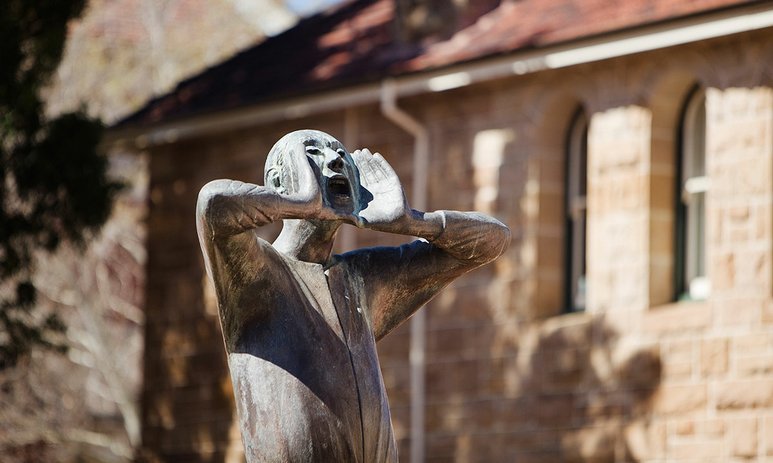|
How much of our day is spent on the BS in our workplaces? BS comes in many forms, but it usually involves people being very busy rather than people being very productive. In many workplaces, it becomes a part of the culture where being seen to be busy is far more important than being seen to be contemplative, reflective, creative, or thoughtful.
As work becomes more and more about doing tasks, then people start to have more and more stuff that needs to get done. It piles up and sometimes overwhelms us. We stay late getting it done. We jump from one task to the next. We never really celebrate finishing stuff - in fact, we might not even want to admit that we finished something because we might get something else to do. Or worse, somebody might think that we're not busy, not important, not useful, or no longer contributing. We get judged on, and judge others by, busy-ness. For some it has even become a status symbol. Yes, we often hear our workplace leaders talk about things like engagement, happiness, and making a difference. Then these things become someone's task, and the cycle goes on. Meanwhile, according to research, less than a third of us feel genuinely engaged at work, believe that our work actually makes a difference, or obtain any sense of fulfilment from our jobs. It's no longer fanciful to imagine a future of robots and artificial intelligence, where we have amazing machines that can do most of our busy-ness for us. Will we care whether the robots and machines are happy? Probably not. We are not robots. While doing tasks and keeping busy my make us feel important (for a while), safe that we will keep our job (for a while), and maybe even profitable (for now), the cost of our busy-ness obsession is mounting up. In many instances we are ignoring our emotional needs - because we undervalue them and in our busy-ness paradigm we see them as annoying distractions. Organisations that embrace their humanity actually perform better. They embrace human traits like creativity, contemplation, social connection, and vulnerability. These are the organisations that are solving big problems. They're the ones inventing and disrupting. They're the ones attracting great talent. They're the ones people want to work for. At some point, someone in these organisations called out the BS. They decided that taking the time to contemplate, reflect, create, and think was more important than being busy.
0 Comments
Leave a Reply. |
AuthorsH Agents write about the joys and challenges of entrepreneurship and managing people. Archives
May 2024
|
(c) Copyright 2024 INCOMMAND Pty Ltd. View our privacy policy and data security statement. Please note that your use of The H Factor system is subject to our Terms of Service.


 RSS Feed
RSS Feed